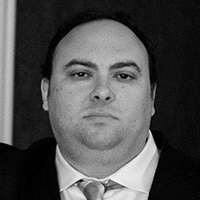 Montgomery Creek RICO Act Lawyers, California
Montgomery Creek RICO Act Lawyers, California
Sponsored Law Firm
-
 x
x

Click For More Info:
-
Magid Law
112 Main Street Weaverville, CA 96093» view mapCriminal Defense Law Experienced, Aggressive Criminal Defense
Hiring a criminal defense attorney is one of the most important decisions you will ever make. Don’t be a victim of the system. Choose Benjamin Magid as your attorney.
800-761-7580
Not enough matches for Montgomery Creek RICO Act lawyer.
Below are all Montgomery Creek Criminal lawyers.
Sponsored Lawyers
1-10 of 11 matches
Felony, Misdemeanor, Domestic Violence & Neglect, Child Custody, Custody & Visitation
Mr. Levin attended law school at UC Hastings in San Francisco. He was the president of the Jewish Law Students Association and founded the UC Hastings Public Speaking Association. He excelled in trial advocacy, which gave him the motivation to become a trial lawyer. He received Student Leader of the Year Award, as well as multiple awards in trial advocacy classes. Mr. Levin interned in the San Francisco and Shasta County District Attorney’s Office, and worked for two years for Attorney Eric Berg here in Redding. He worked intensively on the Berry White double homicide trial in San Francisco, several other homicide trials, as well as assault and battery cases, DUIs, theft, sexual assault and drug cases.
(more)


 Benjamin Magid Weaverville, CA
Benjamin Magid Weaverville, CA Practice AreasExpertise
Practice AreasExpertise

